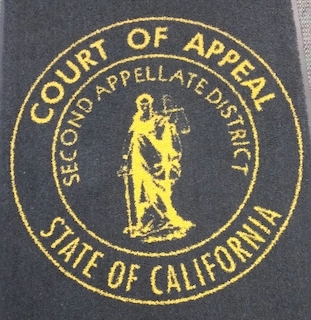Counsel for M.S. argued that M.S. should be granted diversion under §§ 1001.35 and 1001.36 to get attention for her psychological needs, to prevent self-harm and obtain continued counseling. See People v. Frahs (2018) 27 Cal.App.5th 784, 791, review granted Dec. 27, 2018, S252220 (holding that the statute is retroactive to apply to defendants whose appeals are pending at the time the statute was enacted).
Counsel for M.S. obtained psychiatrist reports that M.S. suffered from childhood sexual abuse, “command hallucinations” and had a history of cutting herself, among other psychological problems including pervasive pregnancy denial, a dissociative disorder, and post-traumatic stress disorder at the time of her crime.
It merits mention that due to the crime committed, murder, M.S. would be ineligible for mental health diversion even if she had been an adult. Penal Code § 1001.36(b)(2)(A).
 Court of Appeal Second Appellate District Los Angeles
Court of Appeal Second Appellate District Los Angeles
Nonetheless, the Second Appellate District evaluated whether mental health diversion was applicable to juveniles who are prosecuted within the juvenile court system, as was M.S.
The Second Appellate Division began its analysis by noting that Welfare and Institutions Code section 203 states: “An order adjudging a minor to be a ward of the juvenile court shall not be deemed a conviction of a crime for any purpose, nor shall a proceeding in the juvenile court be deemed a criminal proceeding.”
Indeed, a juvenile court’ is a separate, civil division of the superior court. Welfare & Institutions Code § 246. A prosecutor charges a minor with an offense by filing a juvenile petition, rather than a criminal complaint. Welfare & Institutions Code §§ 653.7, 655.
Thereafter, juveniles admit or deny an offense, rather than plead guilty or not guilty. Welfare & Institutions Code § 702.3.
There are no “trials,” per se, in juvenile court, rather there is a “jurisdictional hearing” presided over by a juvenile court judge. Welfare & Institutions Code § 602. The jurisdictional hearing is equivalent to a ‘bench trial’ in a criminal court. See Cal. Rules of Court, Rule 5.780.
Although a juvenile court judge adjudicates alleged law violations, there are no “convictions” in juvenile court. Welfare & Institutions Code § 203. Rather, the juvenile court determines under the familiar beyond the reasonable doubt standard and under the ordinary rules of evidence whether the allegations are “true” and if the minor comes within its jurisdiction. Welfare & Institutions Code § 602 et seq.
Moreover, there is no “sentence,” per se, in juvenile court. Rather a judge can impose a wide variety of rehabilitation alternatives after conducting a “dispositional hearing,” which is equivalent to a sentencing hearing in a criminal court. Welfare & Institutions Code § 725.5; In re Devin J. (1984) 155 Cal.App.3d 1096, 1100, 202 Cal. Rptr. 543.
Turning to M.S.’s case, the appellate court noted that the juvenile court judge placed M.S. in the highest level of treatment in a group home. In other words, she was going to receive mental health treatment just as 1001.36 directs anyways, despite the charges she faced excluding her from such treatment if she had been in adult court.
The citation for the Second Appellate District Court ruling discussed above is In re M.S. (2nd App. Dist., 2019) 32 Cal.App.5th 1177, 244 Cal. Rptr. 3d 580.
Contact us.  Juvenile Court Sign
Juvenile Court Sign Court of Appeal Second Appellate District Los Angeles
Court of Appeal Second Appellate District Los Angeles